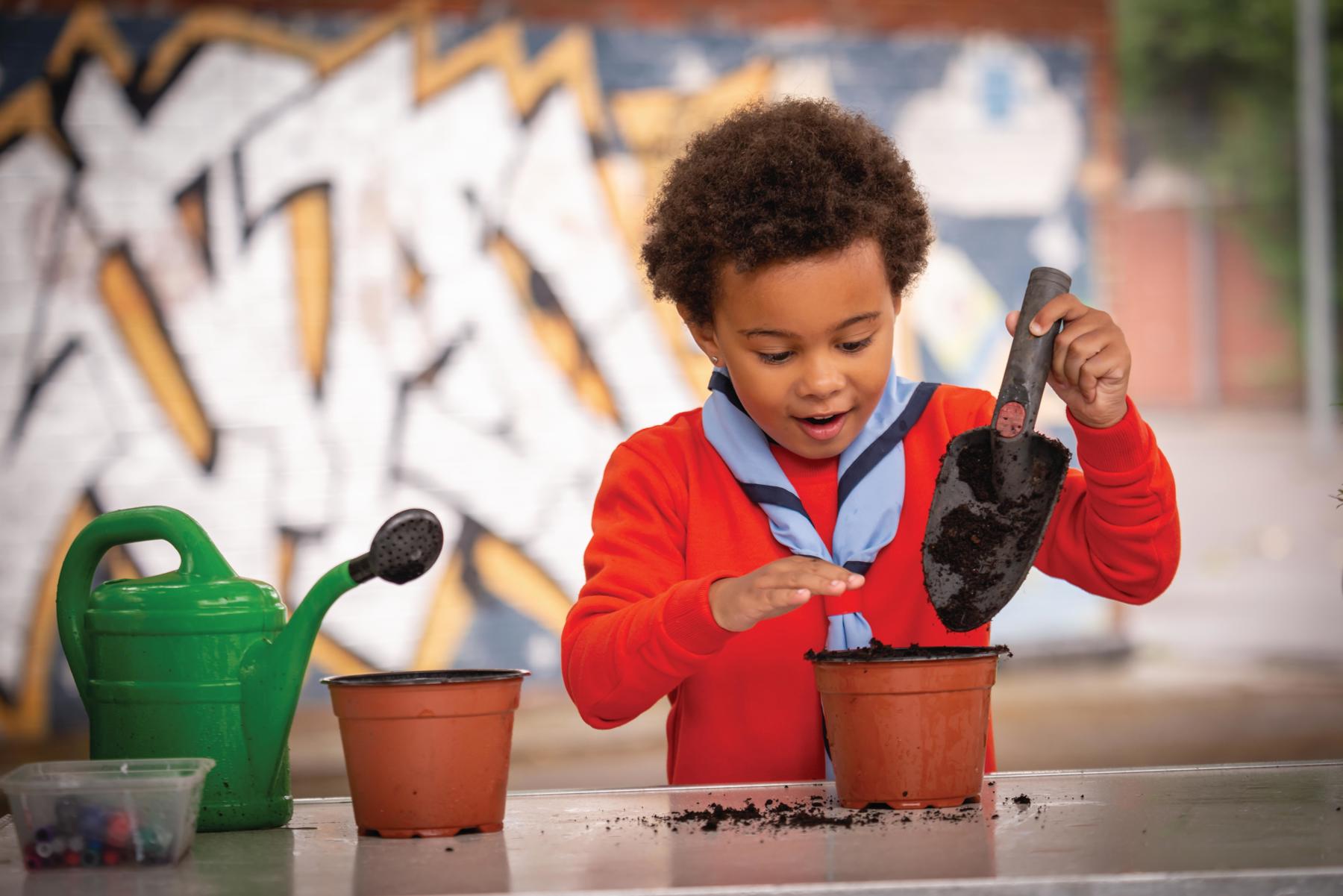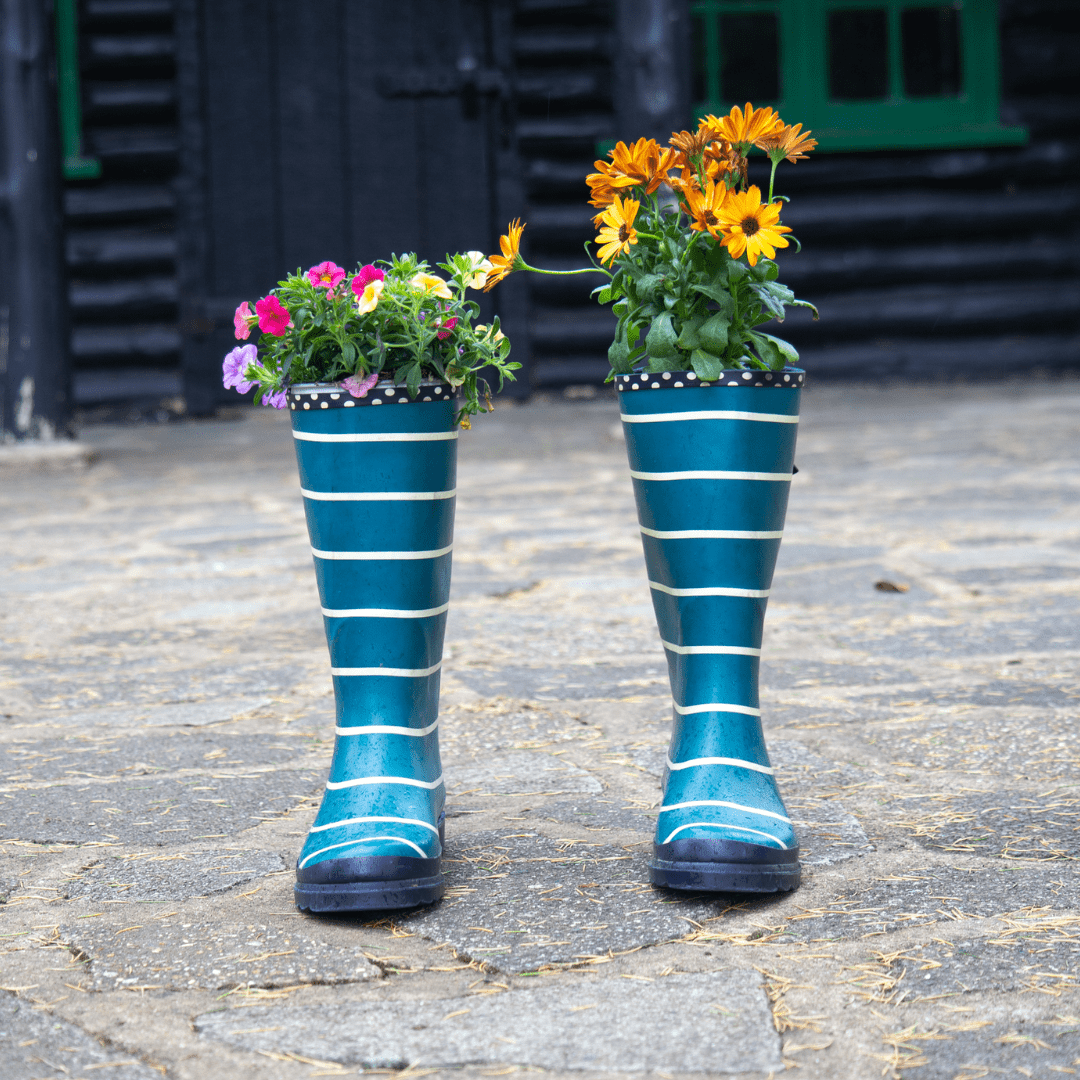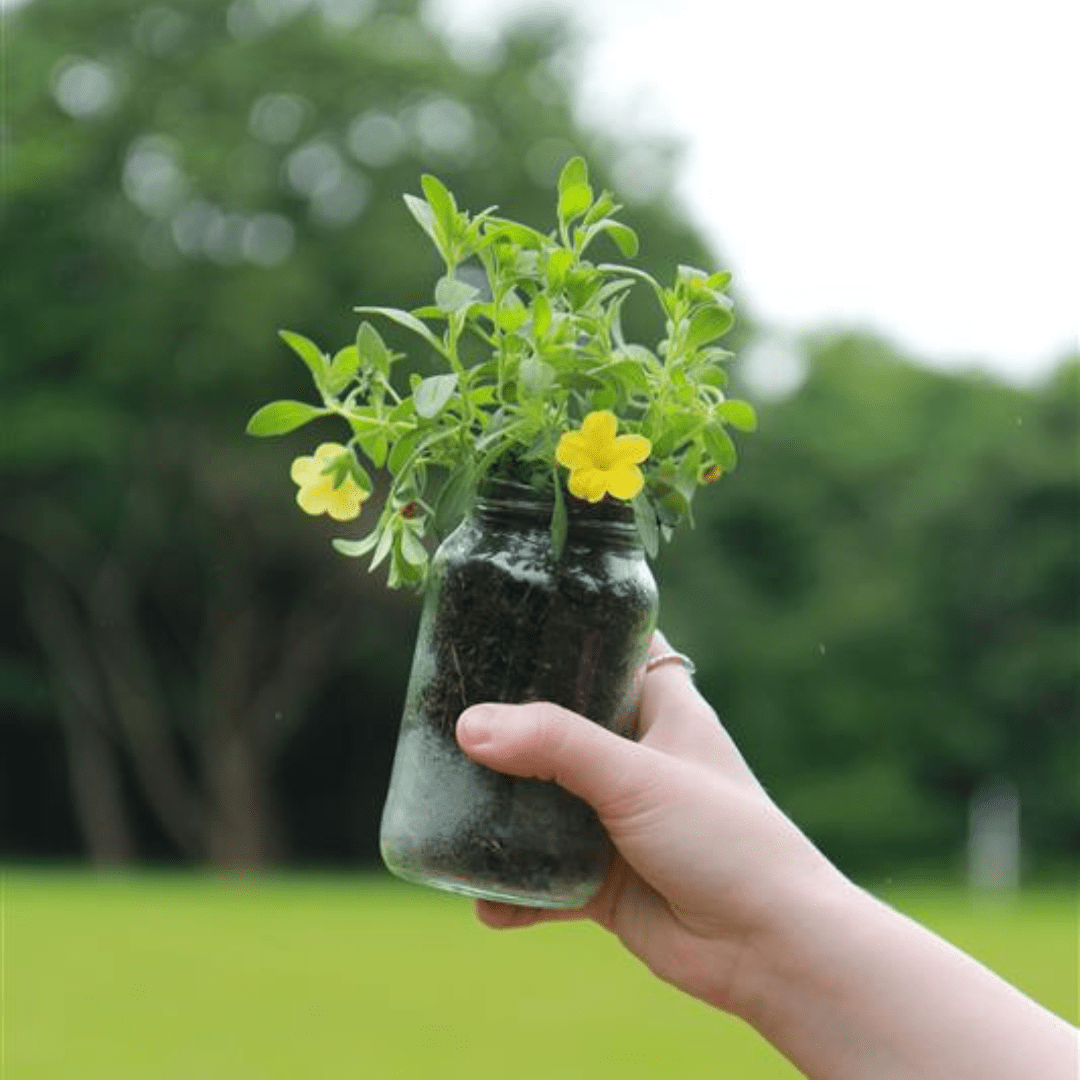7 top urban gardening tips to help nature thrive
Spring is finally here! With the RHS Chelsea Flower Show taking place this week, it’s the perfect opportunity to give gardening a go, especially in towns, cuties and urban spaces.
Whether you're a beginner looking to get started or an experienced gardener wanting inspiration, here are our urban gardening tips to give nature a home in the city.
Wherever you live, you can brighten up your home, meeting place or local community with plants, trees and by growing vegetables.

The benefits of urban gardening
Whether you’ve got a small garden, a balcony, or even just a windowsill to work with, there are many ways to bring nature to your home and community.
Creating green spaces and planting can have incredible benefits for both you and the environment, too.
Some of the benefits include:
- It’s a fun way to recycle your old household items.
- It's an activity for everyone and anyone, including young people. You could work a gardening activity into an upcoming Scouts session.
- It’s a hobby that’ll boost your skillset, knowledge and wellbeing. Looking after plants and watching them grow can give you an immense sense of achievement and help with mindfulness.
- It can work in various ways to suit your space, no matter how big or small.
- It can be super easy activity and there's a low-cost to get started!

Our top tips
Here are some affordable urban gardening tips to help you make the most of your space.
Containers are ideal for growing things in small spaces. They’re sturdy and relatively cheap, but you don’t need to buy any if you’ve got some at home.
Don’t be afraid to recycle containers - even old fruit crates work well. You can line them up in your garden or use them to grow inside with a grow light and good air circulation.
It’s a good idea if your containers have drain holes at the bottom, to allow water to drain freely. Remember to water them when the soil’s looking dry.
Hanging plants are fantastic, especially if you’re limited on floor space. You can hang them on walls to brighten up your indoor or outside space.
You can buy and fix wall planters, or you can recycle old pots you already have at home and tie them with string for an even cheaper option.
It’s always handy to have herbs in your home to add to your cooking. If you’ve got old egg cartons lying around, they’re perfect for growing herbs in.
- Add a few holes with a pencil (be careful!) in the bottom of each cup for drainage, and pop a tray or some cardboard underneath each cup to catch the water.
- Drop a seed-starting mix into each cup, and then a couple of seeds of your choice.
- Make sure to check on them daily, and water them when the soil gets dry.
- The cartons will need to be kept warm for your herbs to grow well, so leave them in a warm area of your house. You could leave them near a window that catches the sun.
Many vegetables grow well indoors, such as carrots, onions, and potatoes. Growing vegetables is so rewarding when they’re ready to eat, and helps you save your pennies at the supermarket.
You could plant some vegetables in your session, and let your Scouts take their pots home to look after. Remember to check in and see how they’re growing!
- Carrots take a while to harvest, around 70 days, but are simple to maintain.
- Salad greens, like lettuce and spinach, will grow quick. You can plant new seeds every 10 to 14 days.
- Try reusing your household items as veggie planters – try old yoghurt tubs, egg cartons, and any other container-like items. Simply add potting soil and the vegetable seeds of your choice to get started.
Bright plants are wonderful for bringing colour to your space.
- Grow plants that thrive in the shade, such as snowdrops, pulmonaria and ivy.
- Most plants will only need to be watered twice a week, so make sure you aren’t overwatering them.
- Check the air needs of your plant – air plants need regular misting with a spray bottle.
- Check the light needs of your plant – most houseplants will need indirect light, and some might need artificial light to grow indoors.
Extra tip: Turn your urban gardening into an art project, too. Young people and adults can get creative and decorate their egg cartons and pots.
Creating a succulent bowl is easy and won’t take up much space (depending on how big you decide to make it, of course).
Grab a large terracotta bowl and add some potting soil. Then, when you’ve got your succulents ready, make some holes in the soil to plant them, starting with the largest and ending with the smallest.
They’re great for adding some variety to your urban garden, easy to maintain, and always look pretty.
As well as giving you lots more room to grow, community gardens are ideal for meeting people who share your passion for gardening.
You can share ideas together, while spending time outside in the fresh air – two things that’ll boost your wellbeing.
Why not have a search around, or reach out to your community, to see if there’s one you can join or visit?
In partnership with WWF, we’ve got a great activity to help you and your group start your own community garden. It’s a perfect activity to take an active role in community and make it better, while working towards your Community Impact badges.
